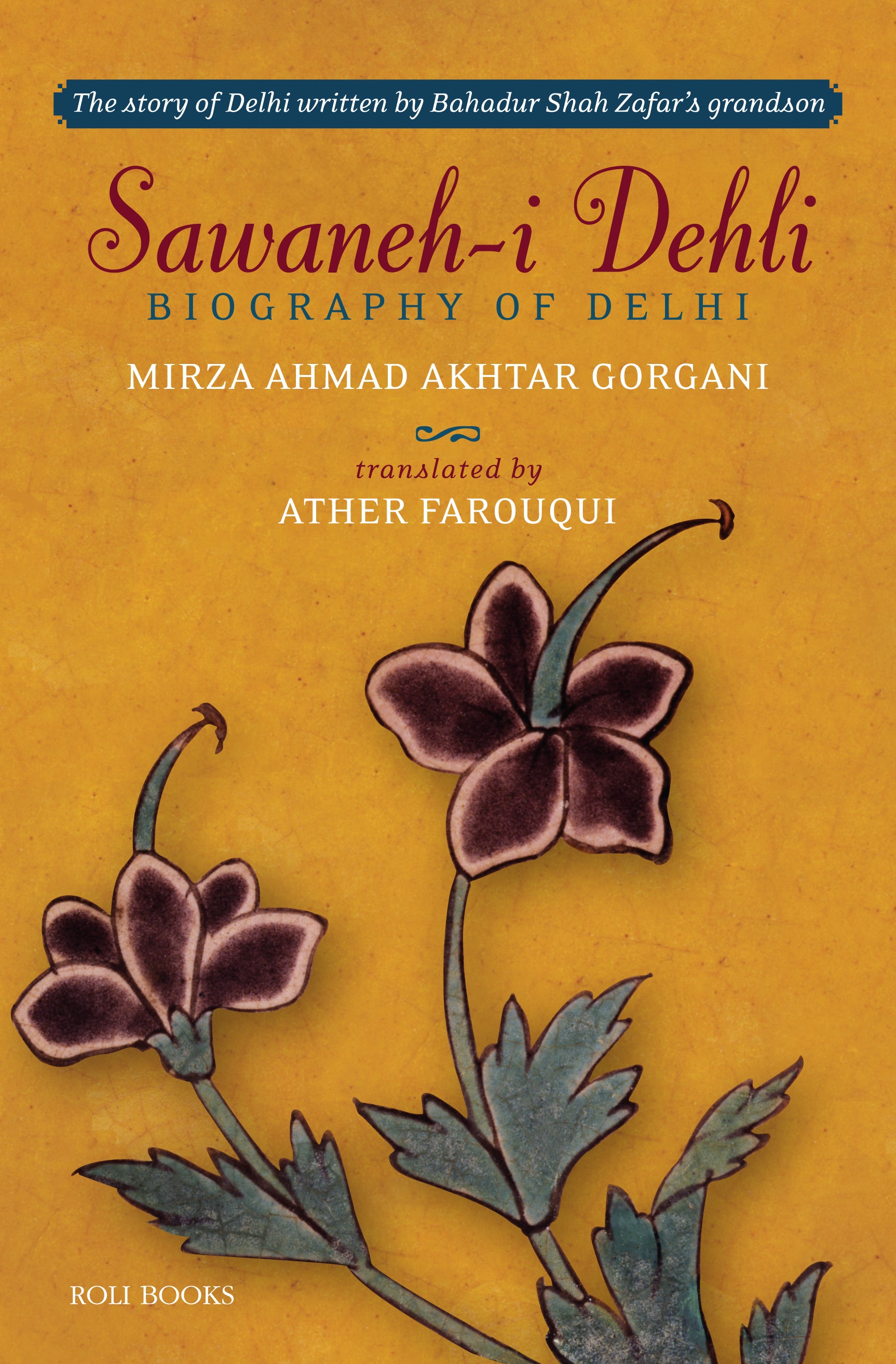Sawaneh-i Dehli : Biography of Delhi
Mirza Ahmed Akhtar Gorgani
From being the abode of gods where lying and dying was supposed to be a blessing to becoming the imperial city facing decline and ruin in the early nineteenth century, Sawaneh-i Dehli, – written by a great admirer of the British Empire – offers a glimpse into one of the oldest cities in the Indian subcontinent.
Ather Farouqui is a pioneering scholar of Urdu language and education. He was conferred the prestigious Sahitya Akademi Award in 2012 for his Urdu and Hindi translations of Sons of Babur (Babur ki Aulad), an English play written by Salman Khurshid. Farouqui’s academic focus lies on aspects of Urdu, Urdu-related politics, as well as Muslims in contemporary India. One of his notable publications include the translation of The Life and Poetry of Bahadur Shah Zafar. He also edited Muslims and Media Images: News versus Views and Redefining Urdu Politics in India. His most recent publication, Delhi in Historical Perspectives, is a translation of essays on the historical and cerebral cultural life of the capital city by medieval Indian historian Professor K.A. Nizami.
Presently, he is the General Secretary of the oldest Urdu organization, Anjuman Taraqqi Urdu (Hind) established in 1882. A PhD from Jawaharlal Nehru University (JNU), he is firmly of the view that the enhancement of civil society is the only answer to the scourge of religious madness in the country.















